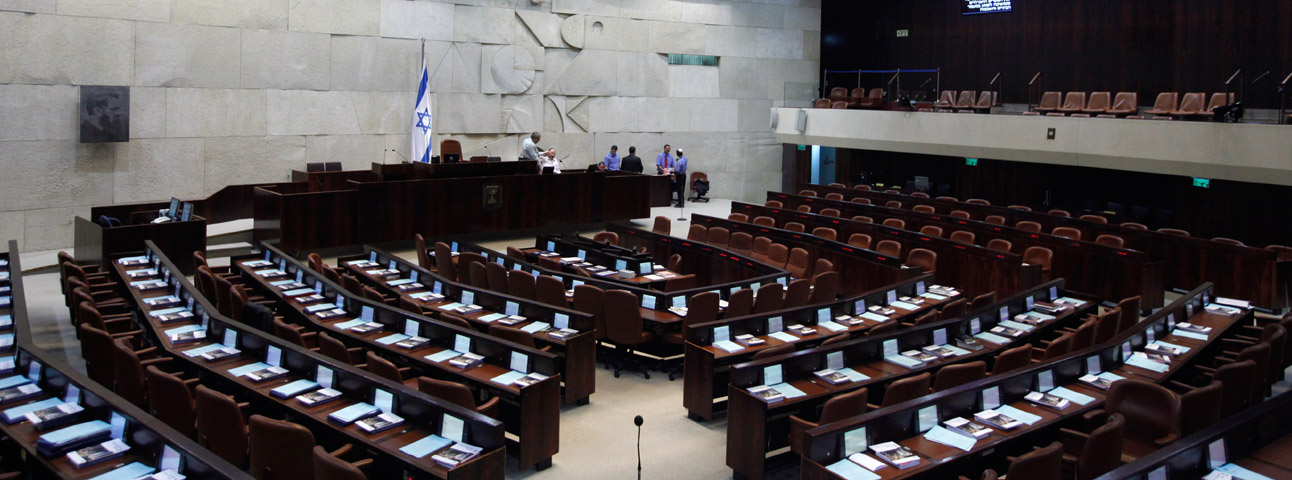Q&A: A Guide to the Perplexed: "Defecting" from a Parliamentary Faction
Ahead of the Knesset House Committee’s debate and vote to declare MK Amichai Chikli as a ‘defector’ - what is a parliamentary defector, how are they designated as such, and what are the repercussions? IDI experts Dr. Chen Friedberg, Dr. Assaf Shapira have all the answers.

Flash 90
Who is a “defector"? A Knesset member whom the Knesset House Committee rules has seceded from his or her faction remains an “unattached member of Knesset,” and is forbidden to join any faction during that Knesset term.
Parliamentary tools in the current Knesset:
What restrictions will apply in the current Knesset? Those who opt to secede from their faction will not have “the right to propose a no-confidence vote in the government, be given an office designated for a faction in the Knesset building, or issue notifications regarding non-participation in Knesset discussions or votes.”
"A Member of the Knesset, who according to the House Committee has left his Parliamentary Group, as stated in article 61 of the Knesset Law, shall have all the rights that these Rules of Procedure grant to a parliamentary group, except for the right to propose the expression of no-confidence in the Government, receive a parliamentary group room on the premises, and make announcements regarding non-participation in a debate or a vote."
And which parliamentary tools will still be available? Those who secede from their factions will still be able to raise queries and ex parte motions on the Knesset agenda, vote in the plenum, and request documents from the Knesset Research and Information Center. They will—of course—continue to enjoy parliamentary immunity. In addition, they may propose regular motions on the agenda and serve as members (and even chairs) of Knesset committees, if other factions such as the Likud are willing to allow this at the expense of their own allocation of regular motions and committee seats. Those seceding from their factions can also advance private members’ bills that have been submitted to the Knesset if one of the parties allocates from their quota (they can, in any case, table such bills, but the initiation of a preliminary reading for the bill is subject to factionary allocations).
Running for the next Knesset:
Running as a candidate in a list not represented in the current Knesset: Those seceding from their factions will not be able to run in the next elections in any framework in which a party represented in the current Knesset is a member. Should MK Amichai Chikli or Idit Silman be declared "defectors", they will not be able to run on the same list as any faction currently serving in the Knesset (including the Likud or one of the religious- Zionist parties). They will be able to run as a candidate of a new party in the next elections, if the party is running independently. This sanction will not apply if he or she resigns from the Knesset after being declared as having seceded from the faction.
Funding:
In the current Knesset: Parties represented by a Knesset faction receive monthly public funding, according to the number of their members currently serving in government with each MK is "worth" approximately NIS 83,316. Parties represented by independent MKs, who are not part of any faction, are not eligible for such funding. Therefore, Should MK Amichai Chikli or MK Idit Silan be declared as having seceded from their faction, they—or rather, the new party he or she will join or form—will not receive "their" ongoing party funding. At the same time, the funding given to his party Yamina—will not be affected and will continue at the same level. However, those who secede do continue to receive the financial benefits given to an individual Knesset member, including a salary and a budget for communicating with constituents.
In the next elections: The party in which a MK who has seceded runs for the Knesset will be considered a new party, and will receive the same funding as any other party not represented in the current Knesset.
Membership in the government during the current Knesset term: Those who secede, will not be able to serve as ministers or deputy ministers in the current Knesset. This sanction will not apply if the seceding MK resigns from the Knesset after being declared as having seceded from their faction.
Recruit additional “defectors” from Yamina: According to the rule that allows a third of the faction members to split from its party. Almost no sanctions will be imposed on them (except for one - they will not be able to enjoy ongoing party funding, and Yamina will continue to enjoy funding from a 7-member faction).
Timetable: After the "quasi-judicial" hearing on an MKs secession in the Knesset House Committee and the vote have taken place - the course has been set. If the MK has seceded without the required third - all the above sanctions are enacted, regardless of whether additional MKs decide to secede at a future date.
This article was originally published in Nov. 2021 and revised in April 2022.
